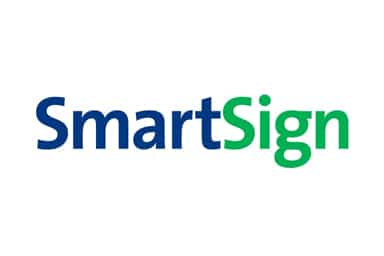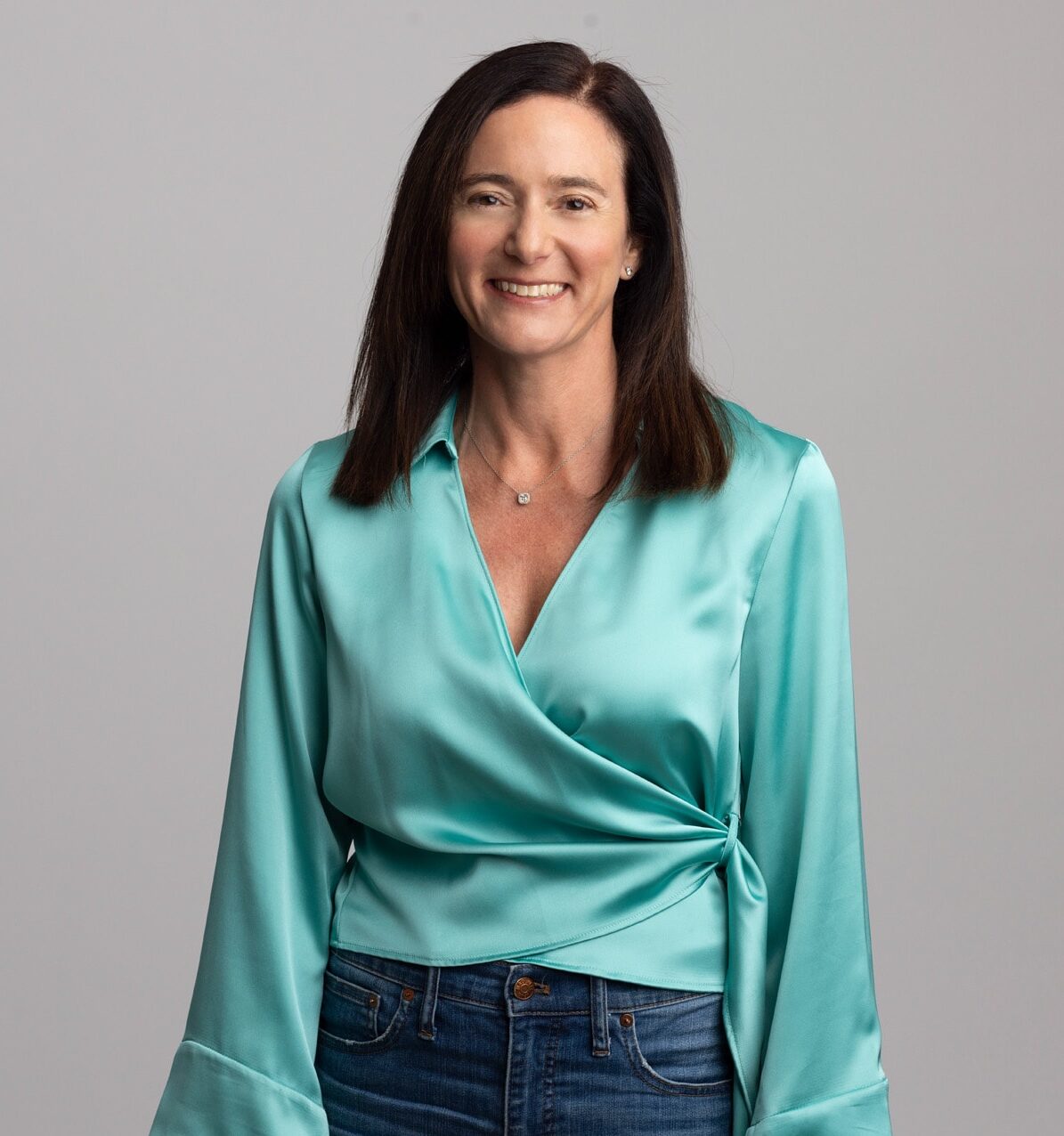Close

Executive Summary
SmartSign relied on a network of partners to design and manufacture its products – signs, labels, and tags – while it managed marketing, sales, and order fulfillment through a pioneering e-commerce website. After Norwest bought the business, the firm partnered with SmartSign management to execute a strategy that brought manufacturing in-house through acquisitions. The result was a transformed, more diversified company that delivered greater value to customers and enhanced its competitive differentiation.
Sometimes, the partnership between Norwest and the leadership of a portfolio company allows a business to take a new direction and pursue strategies not previously feasible. Such was the case with SmartSign, an e-commerce pioneer that produces signs, labels, and tags for businesses and organizations of all sizes. Its track record of market leadership, profitability, and consistent growth motivated Norwest to purchase the company in 2019.
The partnership with Norwest gave SmartSign’s management an experienced team of investors and operators who allowed it to pursue a strategy that, through acquisitions, moved manufacturing from third parties into the company.
The result was a larger, stronger, and more diversified business whose enhanced competitive position and continued growth made it attractive to a private-equity firm that acquired it in 2022.
Blair Brewster started SmartSign in his basement in 1999 with a simple mission: make it easy to order the perfect sign. That simplicity is deceptive, however. Businesses and institutions need signs, labels, and tags for a number of reasons including safety, privacy, and convenience. Brewster’s company would also need to keep up with the demand for new and replacement products necessitated by ever-changing legal and regulatory requirements.
Today, SmartSign is a global platform. In addition to its headquarters in Brooklyn, NY, an office in Jaipur, India, supports development and marketing needs, while products are manufactured by SmartSign-owned facilities in three U.S. states.
Even the COVID-19 pandemic caused only a minor dip in SmartSign’s business. After initially suffering a hiccup in 2020 – like most businesses – SmartSign soon saw a boom in orders for pandemic-related signs such as those requesting social distancing, handwashing, and use of masks.
Typical of Norwest’s approach to building long-term relationships, the first contact with SmartSign came many years ago – in 2013, when Norwest reached out to Brewster and met him in Brooklyn. The Norwest team met regularly with Brewster over the next few years, and by 2019 Brewster was ready to draw some liquidity from his position as SmartSign’s sole owner. An agreement was struck to sell SmartSign to Norwest.
As Norwest and SmartSign management explored potential growth strategies, one of the options raised was bringing manufacturing in-house in order to control more of the supply chain. The Norwest team had seen verticalization work as an effective growth strategy in many companies and saw real possibilities for applying it at SmartSign as well.
From its beginning, SmartSign was solely an e-commerce site; all manufacturing was done by third parties. The addition of manufacturing capabilities could provide several advantages. Brewster had considered making acquisitions but didn’t pursue them because negotiating deals and integrating acquisitions would divert his attention from running the business. And with virtually all his net worth tied up in the company, he was reluctant to expose himself to the variables and potential risks of M&A. It was better, in his mind, to have a partner with expertise in M&A strategy to help plan and execute the acquisitions, as well as share in the risk. Norwest met those needs.
Verticalization is a proven strategy pursued by companies large and small, so when Blair talked about his interest in bringing manufacturing in-house, the Norwest team mutually agreed to apply the firm’s resources and experience to help make it happen.
During the due-diligence process, Norwest interviewed many of the sign-making firms with whom SmartSign worked. When the manufacturers learned SmartSign was pursuing a sale, several CEOs said (unprompted) that they also might be interested in selling.
After SmartSign’s sale to Norwest closed in October 2019, management and Norwest fleshed out a strategy to integrate manufacturing. They saw the acquisition of manufacturers having transformative value for both SmartSign and its customers, including:
The most obvious candidates for acquisition were some of the sign-makers with whom SmartSign was already doing business. The company began buying manufacturers in 2020, eventually acquiring five companies. Their locations supported the goal of creating a nationwide manufacturing presence: the West Coast, Northeast, Great Plains, and Southeast.
Norwest supported SmartSign management during the process, contributing its experience and skills in several areas, including valuation, financing, human resources, legal affairs, tax strategy, and integrating acquired companies.
What emerged from the process was a company that not only took greater control over all facets of business operations, but also delivered greater value to its customers. The strategy delivered impactful results, including:
The result was a larger, stronger, and more diversified business that was able to maintain high levels of growth and customer satisfaction throughout the process of integrating acquired companies. Particularly helpful was the addition, through the acquisitions, of people with extensive experience in managing manufacturing plants – a skill SmartSign lacked.

“Norwest provided critical support in identifying targets, completing due diligence, and negotiating terms,” said SmartSign CEO Max Smith. “Furthermore, we jointly-developed a long-term strategic plan to build a distributed manufacturing system, which enabled us to manufacture and ship products from multiple locations.”
Today, SmartSign has more than a million customers in over 75 countries, ranging from small businesses and Fortune 500 enterprises to schools, hospitals, churches, and military bases. Key competitive differentiators include its breadth of product line, customization (accounting for about half of sales), and fast shipping. The company maintains over 40 websites targeting specific market segments and has enjoyed 22 consecutive years of growth.
The newly transformed SmartSign attracted the attention of Sentinel Capital Partners, which acquired the company in September 2022. Sentinel and SmartSign have continued to pursue this successful verticalization strategy.

Company: SmartSign
Industry: E-commerce & manufacturing
Website: smartsign.com
Founded: 1999
Headquarters: Brooklyn, NY
Investment stage: Exited through acquisition in September 2022
Norwest investment: Acquired the company in October 2019
 Sonya Brown
Sonya Brown Connor Pike
Connor PikeExecutive Summary
SmartSign relied on a network of partners to design and manufacture its products – signs, labels, and tags – while it managed marketing, sales, and order fulfillment through a pioneering e-commerce website. After Norwest bought the business, the firm partnered with SmartSign management to execute a strategy that brought manufacturing in-house through acquisitions. The result was a transformed, more diversified company that delivered greater value to customers and enhanced its competitive differentiation.
Sometimes, the partnership between Norwest and the leadership of a portfolio company allows a business to take a new direction and pursue strategies not previously feasible. Such was the case with SmartSign, an e-commerce pioneer that produces signs, labels, and tags for businesses and organizations of all sizes. Its track record of market leadership, profitability, and consistent growth motivated Norwest to purchase the company in 2019.
The partnership with Norwest gave SmartSign’s management an experienced team of investors and operators who allowed it to pursue a strategy that, through acquisitions, moved manufacturing from third parties into the company.
The result was a larger, stronger, and more diversified business whose enhanced competitive position and continued growth made it attractive to a private-equity firm that acquired it in 2022.
Blair Brewster started SmartSign in his basement in 1999 with a simple mission: make it easy to order the perfect sign. That simplicity is deceptive, however. Businesses and institutions need signs, labels, and tags for a number of reasons including safety, privacy, and convenience. Brewster’s company would also need to keep up with the demand for new and replacement products necessitated by ever-changing legal and regulatory requirements.
Today, SmartSign is a global platform. In addition to its headquarters in Brooklyn, NY, an office in Jaipur, India, supports development and marketing needs, while products are manufactured by SmartSign-owned facilities in three U.S. states.
Even the COVID-19 pandemic caused only a minor dip in SmartSign’s business. After initially suffering a hiccup in 2020 – like most businesses – SmartSign soon saw a boom in orders for pandemic-related signs such as those requesting social distancing, handwashing, and use of masks.
Typical of Norwest’s approach to building long-term relationships, the first contact with SmartSign came many years ago – in 2013, when Norwest reached out to Brewster and met him in Brooklyn. The Norwest team met regularly with Brewster over the next few years, and by 2019 Brewster was ready to draw some liquidity from his position as SmartSign’s sole owner. An agreement was struck to sell SmartSign to Norwest.
As Norwest and SmartSign management explored potential growth strategies, one of the options raised was bringing manufacturing in-house in order to control more of the supply chain. The Norwest team had seen verticalization work as an effective growth strategy in many companies and saw real possibilities for applying it at SmartSign as well.
From its beginning, SmartSign was solely an e-commerce site; all manufacturing was done by third parties. The addition of manufacturing capabilities could provide several advantages. Brewster had considered making acquisitions but didn’t pursue them because negotiating deals and integrating acquisitions would divert his attention from running the business. And with virtually all his net worth tied up in the company, he was reluctant to expose himself to the variables and potential risks of M&A. It was better, in his mind, to have a partner with expertise in M&A strategy to help plan and execute the acquisitions, as well as share in the risk. Norwest met those needs.
Verticalization is a proven strategy pursued by companies large and small, so when Blair talked about his interest in bringing manufacturing in-house, the Norwest team mutually agreed to apply the firm’s resources and experience to help make it happen.
During the due-diligence process, Norwest interviewed many of the sign-making firms with whom SmartSign worked. When the manufacturers learned SmartSign was pursuing a sale, several CEOs said (unprompted) that they also might be interested in selling.
After SmartSign’s sale to Norwest closed in October 2019, management and Norwest fleshed out a strategy to integrate manufacturing. They saw the acquisition of manufacturers having transformative value for both SmartSign and its customers, including:
The most obvious candidates for acquisition were some of the sign-makers with whom SmartSign was already doing business. The company began buying manufacturers in 2020, eventually acquiring five companies. Their locations supported the goal of creating a nationwide manufacturing presence: the West Coast, Northeast, Great Plains, and Southeast.
Norwest supported SmartSign management during the process, contributing its experience and skills in several areas, including valuation, financing, human resources, legal affairs, tax strategy, and integrating acquired companies.
What emerged from the process was a company that not only took greater control over all facets of business operations, but also delivered greater value to its customers. The strategy delivered impactful results, including:
The result was a larger, stronger, and more diversified business that was able to maintain high levels of growth and customer satisfaction throughout the process of integrating acquired companies. Particularly helpful was the addition, through the acquisitions, of people with extensive experience in managing manufacturing plants – a skill SmartSign lacked.

“Norwest provided critical support in identifying targets, completing due diligence, and negotiating terms,” said SmartSign CEO Max Smith. “Furthermore, we jointly-developed a long-term strategic plan to build a distributed manufacturing system, which enabled us to manufacture and ship products from multiple locations.”
Today, SmartSign has more than a million customers in over 75 countries, ranging from small businesses and Fortune 500 enterprises to schools, hospitals, churches, and military bases. Key competitive differentiators include its breadth of product line, customization (accounting for about half of sales), and fast shipping. The company maintains over 40 websites targeting specific market segments and has enjoyed 22 consecutive years of growth.
The newly transformed SmartSign attracted the attention of Sentinel Capital Partners, which acquired the company in September 2022. Sentinel and SmartSign have continued to pursue this successful verticalization strategy.
Get the latest insight and updates from Norwest straight to your inbox: company news, events, real-world guidance, and more.
Get the latest insight and updates from Norwest straight to your inbox: Company news, events, real-world guidance, and more.
Get the latest insight and updates from Norwest straight to your inbox: Company news, events, real-world guidance, and more.
Sign up for our Navigate newsletter! Get Norwest guidance and insights on building an enduring business.
We appreciate your interest.